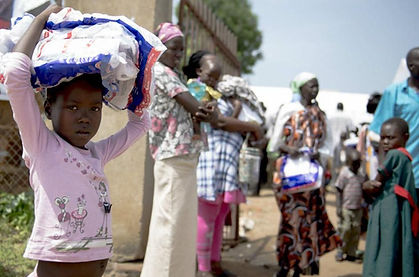What to Expect When You Contact Us?
-
USCIS Policy Manual, Chapter 2 – Definition of Child for Citizenship and Naturalization
-
USCIS Policy Manual, Chapter 3 – United States Citizens at Birth (INA 301 and 309)
-
USCIS Policy Manual, Chapter 4 – Automatic Acquisition of Citizenship after Birth (INA 320)
-
USCIS Policy Manual, Chapter 5 – Child Residing Outside of the United States (INA 322)
-
USCIS Policy Manual, Chapter 2 – Definition of Child for Citizenship and Naturalization
-
USCIS Policy Manual, Chapter 3 – United States Citizens at Birth (INA 301 and 309)
-
USCIS Policy Manual, Chapter 4 – Automatic Acquisition of Citizenship after Birth (INA 320)
-
USCIS Policy Manual, Chapter 5 – Child Residing Outside of the United States (INA 322)

Human Rights Advocates
Order for Restoring Peace on Earth (ORPE)
Restoring Human Dignity: A Divine Mandate
We commit to intervening wherever human dignity is violated, fundamental rights are undermined, or justice is denied, taking every action within our capacity to uphold human rights, honor divine law, and preserve the rule of law.

Champions of Justice: Empowering Fearless Lawyers with Adversarial Skills to Confront Human Rights Abuses and Transform Legal Systems
Champions of Justice, championed by Dr. Edward Tusamba Moises, is a pioneering program designed to equip lawyers with the skills, knowledge, and ethical foundation necessary to confront systemic human rights abuses and challenge entrenched, often authoritarian, legal systems. Through advanced adversarial litigation training, mentorship, and hands-on experiential learning, the program empowers legal professionals to serve as catalysts for systemic reform.
The initiative emphasizes courage, strategic thinking, and ethical resilience, enabling lawyers to advocate effectively for marginalized communities, strengthen judicial independence, and promote fairness and transparency within legal systems. By combining targeted workshops, case-based simulations, mentorship, and advocacy projects, this program aims to cultivate a new generation of fearless, justice-oriented legal professionals capable of transforming both the practice of law and its impact on societies grappling with human rights challenges.
Why this Program so Matters
Human rights abuses continue to persist globally due to weak judicial oversight, limited legal advocacy, and systemic barriers to accountability. Many lawyers, while committed to justice, lack the advanced adversarial skills, strategic litigation experience, and institutional support needed to challenge entrenched injustices.
Key challenges include:
-
Inadequate training in adversarial litigation techniques and human rights law.
-
Fear of retaliation or systemic pushback against lawyers challenging abusive systems.
-
Limited access to mentorship and practical guidance from seasoned human rights advocates.
-
Lack of networks and support structures to sustain long-term systemic legal reform.
Addressing these gaps is critical to empowering legal professionals who can confront human rights abuses, strengthen the rule of law, and foster transformative legal reforms.
Strategic Vision for Legal Change
If lawyers are provided with advanced adversarial skills, ethical grounding, mentorship, and strategic support,
then they will be able to challenge systemic human rights abuses effectively, leading to strengthened legal systems, increased accountability, and tangible improvements in the protection of human rights.
Underlying Assumptions:
-
Lawyers are motivated and willing to engage in high-risk advocacy with adequate preparation and support.
-
Legal systems, even in constrained contexts, allow for some degree of strategic litigation and advocacy.
-
Mentorship, peer networks, and continuous professional development foster sustained impact.
Program Goals and Objectives
Goal 1: Develop a cohort of lawyers with advanced adversarial skills capable of challenging systemic human rights violations.
-
Objective 1.1: Provide intensive, experiential training in litigation, advocacy, and negotiation over 12 months.
-
Objective 1.2: Strengthen knowledge of international human rights law and national legal frameworks.
Goal 2: Build resilience, ethical grounding, and professional networks for lawyers facing high-risk legal environments.
-
Objective 2.1: Establish mentorship and peer-support networks with experienced human rights lawyers.
-
Objective 2.2: Conduct workshops on ethical decision-making, risk management, and personal resilience.
Goal 3: Promote measurable impact in legal systems through strategic litigation and advocacy projects.
-
Objective 3.1: Facilitate at least 5 strategic human rights litigation cases annually led by program participants.
-
Objective 3.2: Document and disseminate best practices and lessons learned for replication across jurisdictions.
Doctrinal and Principled Framework for “Champions of Justice: Empowering Fearless Lawyers with Adversarial Skills to Confront Human Rights Abuses and Transform Legal Systems